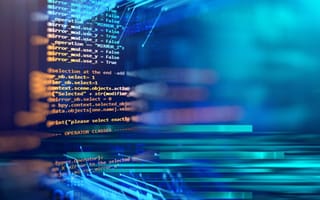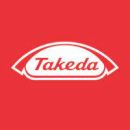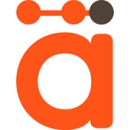If we’re not changing, we’re not growing. And if we’re not continually learning, we sacrifice our ability to create, innovate and advance in our careers and personal lives.
In software development, continuous education and evolution can’t be taken lightly. They’re integral processes in keeping up with a rapidly changing industry. Today’s status quo is guaranteed to eventually become a relic of the past, and in this field, progression happens at a far swifter pace than in most other industries.
Consider the evolution of the C programming language, which was developed in the early ‘70s to address the limitations of the UNIX operating system. Over time, C was standardized and widely adopted, and features like classes, functions and dynamic memory management were developed.
Engineers were tasked with keeping up with each of C’s refinements and advancements. And nearly five decades after its inception, C remains one of the most commonly used languages — though its applications continue to evolve.
These trends demonstrate the shifting landscape in which programmers code, iterate and create. As Abacus Insights’ VP of Product Engineering Jeff Zhou noted, “If you are thirsty for growth, know that you’ve chosen a field that’s changing so fast, and your core strength is not what you know now but the velocity with which you acquire and master new knowledge and skills.”
Zhou and Takeda’s Head of Insights and Analytics, Applied Data Sciences and Learning Iksha Herr shared what tools and programs help drive their skills and career development and revealed the challenges they’ve encountered while trying to stay ahead of the curve.

Takeda is a biopharmaceutical company with a focus on research and development and values-based care.
What particular habits or routines do you employ to develop your skills as an engineer? How does your company specifically encourage you to do so?
One routine that I have used consistently is to set aside some dedicated time for learning on a regular basis. Identifying the content, format, training material and so on ahead of time has helped to maximize the time for learning. The Data Science Institute within Takeda has identified a day and block of time that should be used for development and learning activities, and this helps to ensure that the execution of this type of learning plan is easy to do.
What specific tools or programs have been especially helpful in your professional development?
Early in my career, hackathons were quite helpful in tackling technical implementations of business problems as a combination learning activity. More recently, I have found self-directed online courses to be effective due to the flexibility they offer in fitting the activity into the time I have set aside and completing the activity over multiple sessions.
I have found self-directed online courses to be effective due to the flexibility they offer.”
Are there particular challenges you have encountered to staying current with — and growing — your skills and knowledge? What advice would you offer individuals and teams looking to avoid these potential pitfalls?
Considering the pace of development of new technology, tools and so on, one significant challenge I have faced is how to parse and select topics, technology and skill areas to stay current on and learn more about. An approach that has worked for me has been to focus on the impact-value angle and work backward toward the technology areas that map into these elements. This type of approach helps to make learning purpose-driven and avoid the need to pivot far too often from one area to another.

Abacus Insights is a data management platform that helps healthcare professionals uncover differentiated insights.
What particular habits or routines do you employ to develop your skills as an engineer? How does your company specifically encourage you to do so?
As engineers, sometimes we get lost in learning, building and integrating technologies, and I know — it’s a lot of fun! One habit I have actively developed is carving out time to think about what I have accomplished that month or quarter. Reflecting on accomplishments gives me a clear idea of where I spend my time and whether I am spending time in the areas that align with my career goals. Do I spend too much time reviewing other people’s designs and code instead of doing them myself? Do I want to learn more front-end technologies since I aim to be a fluent full-stack engineer?
Reflecting on accomplishments gives me a clear idea of where I spend my time and whether I am spending time in the areas that align with my career goals.”
One program that my company does well is the biannual, goal-oriented performance reviews that we call the Bead Impact Development program. For context, we call ourselves “beads” based on the ancient counting tool, the abacus. The program allows employees and managers to engage in productive conversations around impact and growth. It also provides structure to goal setting and goal tracking. Although managers measure performance and progress throughout the year, the BID program is a terrific tool for employees to enhance their performance and boost their career development.
What specific tools or programs have been especially helpful in your professional development?
I love Massive Online Open Courses. It’s a great invention that opens another door to gaining knowledge quickly, systematically and at your own pace. I often use Udemy, but I am sure people have their favorite MOOC platform. After registering for a course, I examine the syllabus and determine which material benefits me the most. Then, I make notes throughout the course and review them with an aging algorithm. Sometimes I end up with course material that could be more valuable. However, I still use MOOC to accelerate learning, which has been a worthwhile investment.
Are there particular challenges that you have encountered to staying current with — and growing — your skills and knowledge? What advice would you offer individuals and teams looking to avoid these potential pitfalls?
Don’t constrain yourself to what you know and are already good at. Some people are happy where they are, and that’s great. But if you are thirsty for growth, know that you’ve chosen a field that’s changing so fast, and your core strength is not what you know now but the velocity with which you acquire and master new knowledge and skills.









